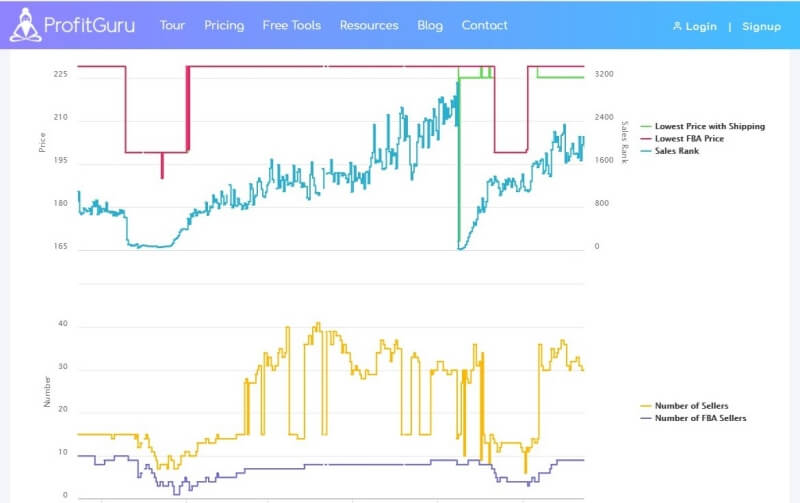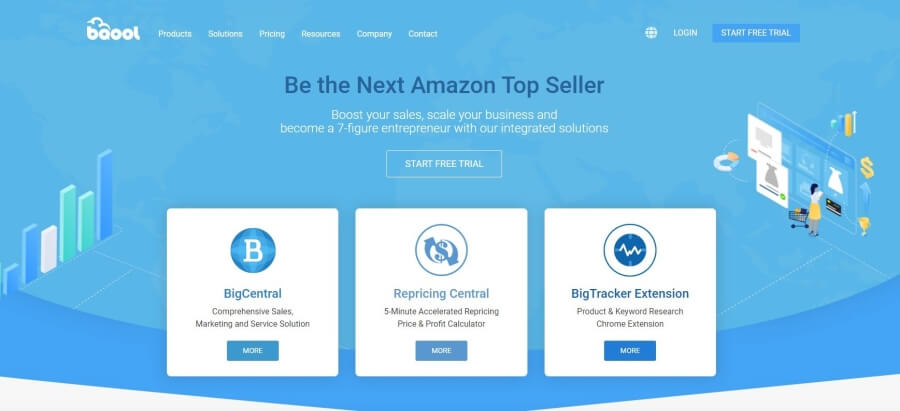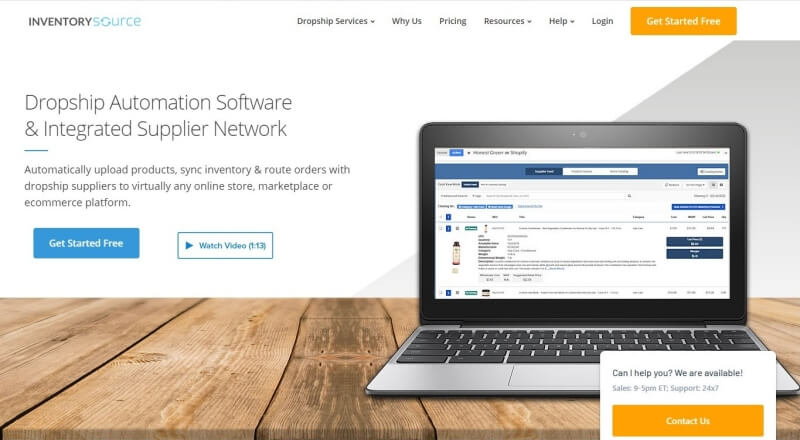Online Arbitrage vs Retail Arbitrage: Which Is Better?
Keren Dinkin
April 02, 2021

Have you ever wondered why prices for the same product can vary widely across e-commerce platforms? That’s because third-party sellers use online arbitrage and retail arbitrage to make a nice profit using the internet.
Know the Difference Between Online Arbitrage and Retail Arbitrage
Online arbitrage is the practice of purchasing products from one online marketplace, usually at a low cost, and then reselling them on another online marketplace at a higher price point.
Retail arbitrage involves buying a product at a discounted price from a physical store, then reselling it for a higher price to make a profit.
Given the way people buy and sell products, we speak of retail arbitrage and online arbitrage mostly with regard to Amazon, as it’s the largest online retailer in the world.
Online arbitrage and retail arbitrage both offer an easy way to make a profit. Even novices can join, thanks to the Fulfilled By Amazon (FBA) and similar programs, which offer in-depth guidance in handling orders.
Before we go into detail about these methods, let’s take a look at the various kinds of Amazon sellers. How can you tell the difference between each seller type? It boils down to two factors:
- Product source - where the sellers originally bought the item
- Manufacturing process - the way a product is made
Seller Types on Amazon
- Liquidators or overstockers are sellers who buy liquidation and overstock, then simply list out the products on Amazon for resale.
- Generic private labelers initially purchase unbranded goods directly from manufacturers. Then, these sellers customize the items with their own branding, logo, and packaging styles before putting them on Amazon for sale.
- Wholesale resellers establish accounts with reputable brands and buy products in large volumes at bulk pricing. Normally, wholesale resellers sell products on Amazon with a control on prices and in adherence to the brand’s own rules.
- Brand builders or creatives are people who design and curate their own products, then use Amazon as a platform to reach interested buyers.
- Product designers are individuals who typically produce printed clothing and other customized merchandise and use Amazon’s print-on-demand merchandise market platform (Merch by Amazon) to resell them to a niche target audience.
Retail Arbitrage – Everything You Need to Know
Retail arbitrage is a popular technique for online resellers. This more traditional approach is reminiscent of a treasure hunt, as it involves going to brick and mortar stores and combing through their stocks for low-priced items.
You would need:
- A lot of patience
- A keen eye for quality
- Research skills
- Organizational skills
- Number skills
How Retail Arbitrage Works
Imagine you find a toy that sells for $15 in your local big-box store. An identical item sells for $20 on Amazon. With retail arbitrage, you can purchase the toy from the physical store at a lower price, then sell it online. You get to pocket the difference, minus Amazon’s fees and shipping costs.
Retail Arbitrage Process
Research and Sourcing
- The best way to purchase discounted products from a retail store is to collect promo codes and coupons. In order to get hold of these little things, you need to pore over sales ads in newspapers and on websites.
- Check out clearance racks and out-of-season piles for better deals.
- Resellers use a scanner to read barcodes on products and shelves, trying to find the best bet. Most grocery or retail stores are packed with a large number of shoppers, so this may take some time.
- After you have identified the best prices, you need to actually buy the products. That may involve standing in a long line at the billing counter.
- Don’t forget to remove the original price tags from the items.
Shipping
- After wrapping and packing the items, spend time jotting down listings for shipments, get down to printing labels, and applying the labels to the items.
- Next, pack the items neatly in boxes. Make sure that the items fit the standards of Amazon packaging.
- Finally, transport the boxes via UPS and wait for the packages to arrive at Amazon warehouses.
Benefits of Retail Arbitrage
With minimal capital, retail arbitrageurs can start a business quickly and make a considerable amount of money on Amazon or eBay.
Retail arbitrageurs can purchase items without having to wait on the shipping or manufacturing of inventory to reach Amazon FBA warehouses. As soon as they can procure the inventory, these resellers can immediately list items for sale on Amazon.
Limitations of Retail Arbitrage
However, retail arbitrage has disadvantages that can hold you back from achieving immediate and long-term business goals.
- It requires a lot of time, effort, and travel.
- Buying in bulk means you would need a lot of storage space.
- Stocks in your preferred stores may be limited or unavailable.
- The process can be frustrating and repetitive.
- Retail arbitrage can be challenging to scale and automate.
Online Arbitrage – A Better Option?
While retail arbitrage and online arbitrage have the same goal — to earn a profit by selling merchandise online — the processes involved have a key difference.
Retail arbitrage requires you to visit physical stores to purchase products, which you then sell online.
In contrast, the whole process of online arbitrage is done using the internet. With just a few clicks, you can order items for reselling and have them shipped to your home or third-party packaging companies.
You may not even have to handle the products in person. Simply buy inventory from retailer websites from the comfort of your home or office. Since everything is done online, you can even outsource parts of the process and scale your business.
Online arbitrage may prove to be a less stressful method for you. After all, you won’t need to visit brick-and-mortar stores, clip coupons, or hold a scanner.
What are the other advantages of this approach?
Benefits of Online Arbitrage
- It involves less risk for sellers as they won’t need to purchase in bulk.
- Online arbitrage enables you to resell branded products minus overhead expenses (e.g., storage space, transportation costs).
- Frees up time as this method does not require your physical presence.
- Allows sellers to access a more diverse range of products.
- Stock quantities are higher online, so you have a larger inventory.
- You can take advantage of existing online listings that rank high in terms of sales.
- You can accumulate reward points if you use your credit card to purchase items. Redeem them to win other perks in the future.
- Gives you the opportunity to work with third-party companies in tax-free states.
- Online stores are often stacked with astonishingly rapid shipping plans, so your products will hit Amazon warehouses faster.
Limitations of Online Arbitrage
- Given the fact that you are not sourcing your products from a wholesaler or manufacturer, you end up paying more than the market price for products. This means that you make a profit, but the profit margin is smaller.
- Amazon already has the best deals and offers products at the cheapest prices. As a result, it’s difficult to find cheaper products anywhere else. Searching for the optimum product can be a neverending ordeal.
- Since you make smaller profits with online arbitrage, it’s often tough to gather funds to buy bulk inventory. This means that growing your business becomes that much tougher.
Best Online Arbitrage Tools and Software
Is online arbitrage worth the effort?
Yes. But to earn a hefty profit, you need to scale and automate your business with the right tools. This way, you can focus on the more significant aspects of your business and avoid burning out.
Here are some of the software and tools that can help you succeed at online arbitrage. You can also use them for part of the process of retail arbitrage.
Product Sourcing Tools
The best way to find products that meet the criteria for an online selling business is to use software that is compatible with Amazon’s FBA product sourcing.
Product sourcing tools are an absolute necessity because:
- They help you discover profitable products that are in high demand.
- They help you determine which products feature minimal risk, easy sources, and fast shipping.
- They help you figure out which products are seasonal and which products can be sold all year round.
Top 2 Product Sourcing Tools

Tactical Arbitrage - Tactical Arbitrage is a trusted software that can help you source the best products for your Online Arbitrage business with ease and minimum effort. It offers sellers thousands of online retail marketplaces that are totally easy to find. This product sourcing tool features a well-developed algorithm that can, within a matter of seconds, determine and measure factors like product discounts, Amazon FBA fees, shipping expenditures, profit margins and ROI.
“I’ve been with TA since the beginning – it started off strong and has grown more powerful than I ever thought possible. ” - Dan from Mallarco.
SourceMogul - With Source Mogul you can beat your competition, stay on top of your Online Arbitrage game, scan over 20 million products per month, and source the right products for your business by using detailed and accurate graphs and estimates.
“Wow, SourceMogul has been a huge time saver when trying to source products for resale.” - Mike from the United States.
Price and Rank History Tools
Price and rank history tools are software that can help you understand the overall performance of your selling product over a period of time. You will get data in the form of graphs and statistics. They highlight which products have sold the most in the past and which products have a good potential market value.
Here’s why you need price and rank history tools:
- To help set realistic price-related expectations and performance standards
- To help lessen manual labor
- To help your products overall performance
Top 2 Price and Rank History Tools

ProfitGuru Sales Estimator - The Sales Estimator is your go-to seller tool for detailed price history charts, rank history graphs and price drops. ProfitGuru lets you check a product’s monthly sales volume using its ASIN. In addition to the sales estimate, you’ll see the number of sellers so you know the level of competition you’re facing.
"One thing I especially like is their Historical Data feature. I don’t have to download anything and I can get all the data I need to make better decisions when sourcing my private-label products." - Christine P.
Keepa - Detailed Price History charts for over 1.5 billion Amazon products.
“I am impressed with the number of features of this 'little' extension. You can get all kinds of information about price variation of the products that you are watching with graphs and even tracking alerts notifications!” - Anonymous
Repricing Tools
Repricing tools are designed for Amazon sellers who wish to generate more sales and gain higher profits. If you want your online business to grow exponentially, understanding the need for repricing tools and using the best ones is crucial to your success.
Here’s why you need repricing tools:
- They analyze multiple market factors, which help determine the appropriate dollar value of resold items. This process can significantly boost sales.
- Automated repricing software automatically updates prices on product listings. This feature can keep a seller up-to-date with price differences and the evolving nature of Amazon’s product listings and trends.
Top 2 Repricing Tools

Bqool - Bqool is a repricing tool, packed with aggressive, intelligent, and performance-centric AI powered strategies that cater to your business needs with efficiency. It offers to evaluate your profits and ROI, then strategically schedule repricing for heightened profits. Plus, it’s easy to set up.
“BQool is top when accomplishing repricing and customer service automation tasks and winning the all-important Buy Box.” - Jorge Saldaña Alegre, Owner
Feedvisor - Feedvisor boasts of a state-of-the-art patented pricing technology that spots your competition in terms of product repricing and develops prices to meet your business goals.
“Feedvisor has become an indispensable component to our Amazon advertising strategy. Their platform and expert team have enabled us to increase market share and optimize our presence on Amazon, and we are very impressed with the consistent results we have seen across our clicks, conversions, sales, and ACoS. The predictive reporting and automated optimizations allow us to always stay one step ahead of our competitors while increasing our operational efficiency beyond human capabilities.” -Adam Shaffer | EVP, General Manager, Chief Marketing Officer | Omni-Channel Distribution
Dropship Automation Tools
Dropship automation tools ease the process of managing e-commerce activities. They can make your business profitable and sustainable.
Here’s why you need dropship automation tools:
- They help you manage your orders in an organized and stress-free fashion.
- They help you mitigate risks.
- They help you tactically administer sales from multiple channels.
Top 2 Dropship Automation Tools

Inventory Source - This Dropship Automation Tool is the oldest in the business. Inventory Source automates every process a dropshipper carries out, from uploading product information on a current website to automatically updating product details provided by the suppliers.
“Inventory Source is the linchpin between our ERP and our 3PL Warehouse. Having experts in this space that had worked with the complexities of 3PL order management certainly helped us achieve our goal of automating the order loop.” - Luke Droulez, Parachute Home
Printful - Printful offers a wide range services that are useful to a dropshipper. From monitoring orders to selecting products, Printful automates every step of the process.
“Starting an online store with Printful was a hassle-free process. The strong support system was very useful in setting up the store. A wide range of products from Printful has helped Fresh Films to showcase the unique designs at its full potential.” - Rohit, Fresh Films
Main Takeaway
Retail and online arbitrage make it possible to earn a profit by reselling products online. That is, as long as you have a well-laid out plan and an organized system in place. Otherwise, these methods may not be as lucrative as you hope. Given its convenience and scalability, online arbitrage offers more potential for profit.
The Free Email Course to KickStart Your Amazon Journey
Getting from an idea to your first few sales in 7 days

